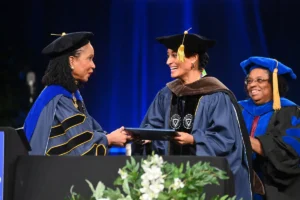
Throughout history, specific individuals have emerged as transformative leaders, using their influence to make a lasting impact. These leaders, from diverse fields and periods, offer invaluable lessons that remain relevant even today. In this article, we will explore three notable figures and the essential insights they offer for modern society.
1. Martin Luther King Jr.: The Strength of Non-Violent Resistance
Dr. Martin Luther King Jr. was a pivotal figure in the American Civil Rights Movement, renowned for his unwavering commitment to nonviolent resistance. He effectively harnessed the power of moral authority to mobilize millions, delivering inspiring speeches and organizing peaceful protests. King’s enduring legacy demonstrates the significance of standing firm in one’s beliefs in the face of adversity and highlights the effectiveness of non-violent measures in achieving social justice.
Key Insight: Moral courage, a clear vision, and the ability to inspire unity can drive significant societal changes without resorting to violence.
2. Nelson Mandela: The Importance of Forgiveness and Reconciliation
After spending 27 years in prison for opposing apartheid in South Africa, Nelson Mandela emerged as a champion of forgiveness and reconciliation. Rejecting bitterness, he prioritized a peaceful transition to democracy and national unity over revenge. Mandela’s journey exemplifies the transformative power of forgiveness in healing societal rifts and fostering an inclusive future.
Key Insight: Leadership rooted in empathy and inclusivity can promote dialogue and bridge divides, even following prolonged conflict.
3. Marie Curie: The Spirit of Pioneering and Persistence
In a scientific landscape dominated by men, Marie Curie overcame substantial barriers in her quest for groundbreaking research on radioactivity. Her relentless perseverance and steadfast commitment to her work led to revolutionary discoveries that paved the way for future generations of female scientists. Curie’s story underscores the importance of breaking through limitations and illustrates how unwavering passion can lead to extraordinary accomplishments.
Key Insight: Courage, resilience, and a determination to challenge norms can yield groundbreaking achievements that benefit future generations.
Applying Historical Lessons to Today’s Challenges
Despite the diverse contexts in which these leaders operated, their core principles remain strikingly relevant to modern issues such as rising inequality, climate change, and political discord. Studying the lives and leadership styles of these remarkable individuals offers valuable insights and tools for navigating contemporary challenges.
By drawing inspiration from their courage, vision, and dedication, we can all strive to become agents of positive change within our communities. Let us strive to leave a legacy that not only impacts our lives but also enriches the world around us.
Conclusion
The lessons from these historical leaders demonstrate that effective leadership transcends time and context. By embodying their principles, we can engage in meaningful actions that foster social change and promote unity in an increasingly complex world.











